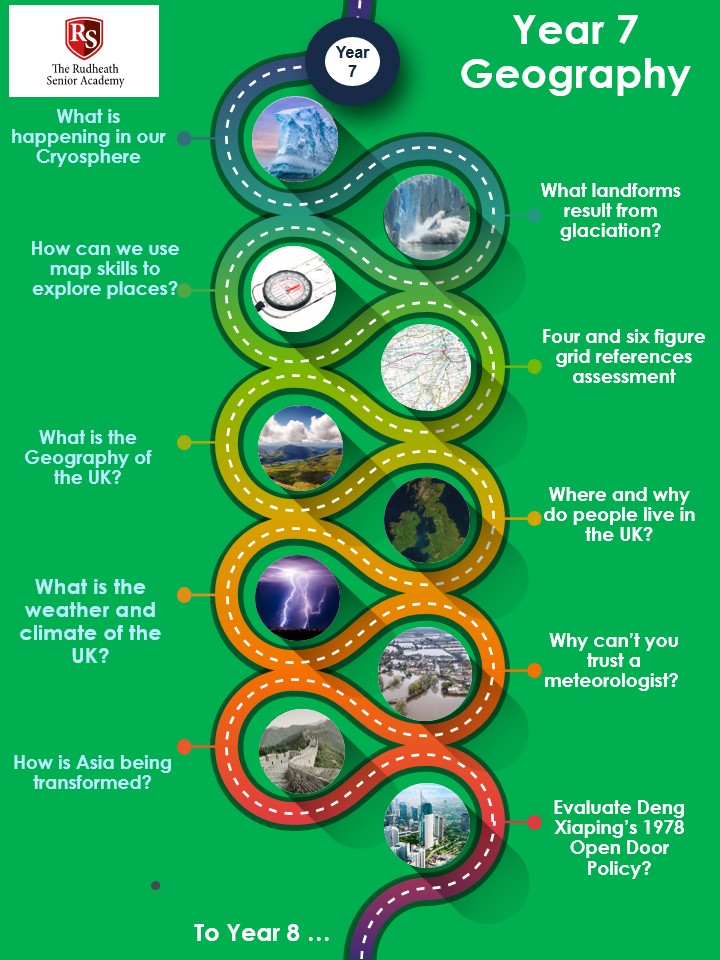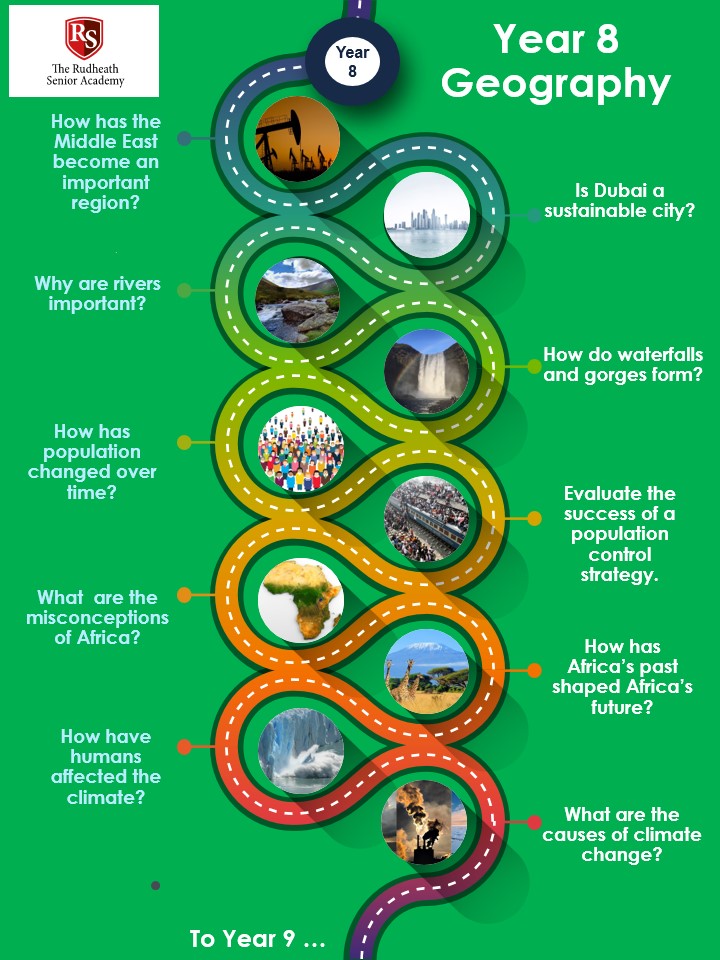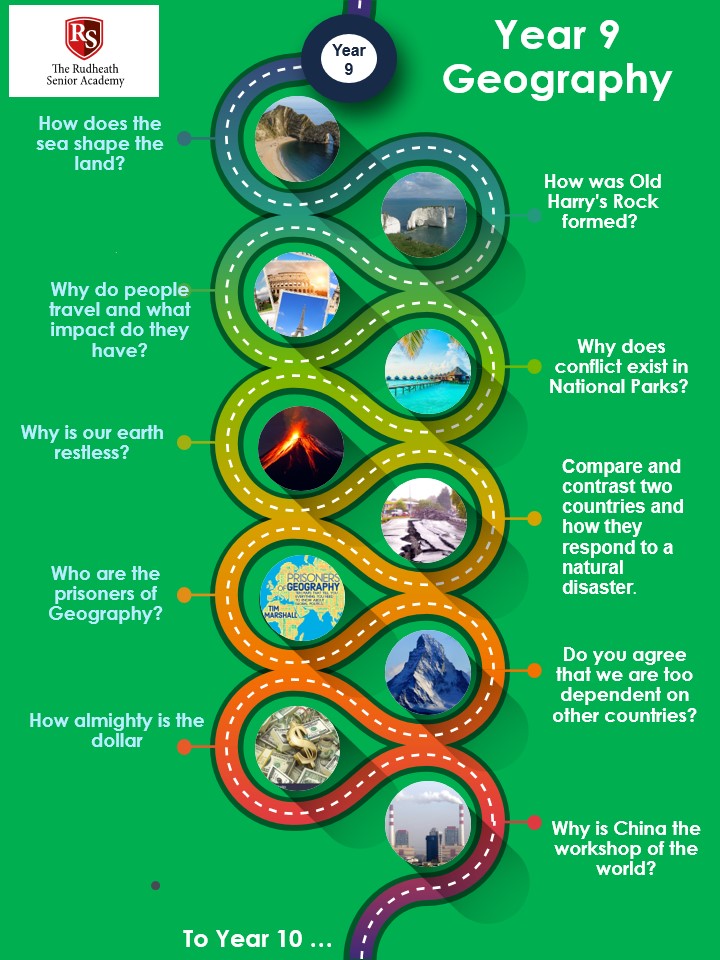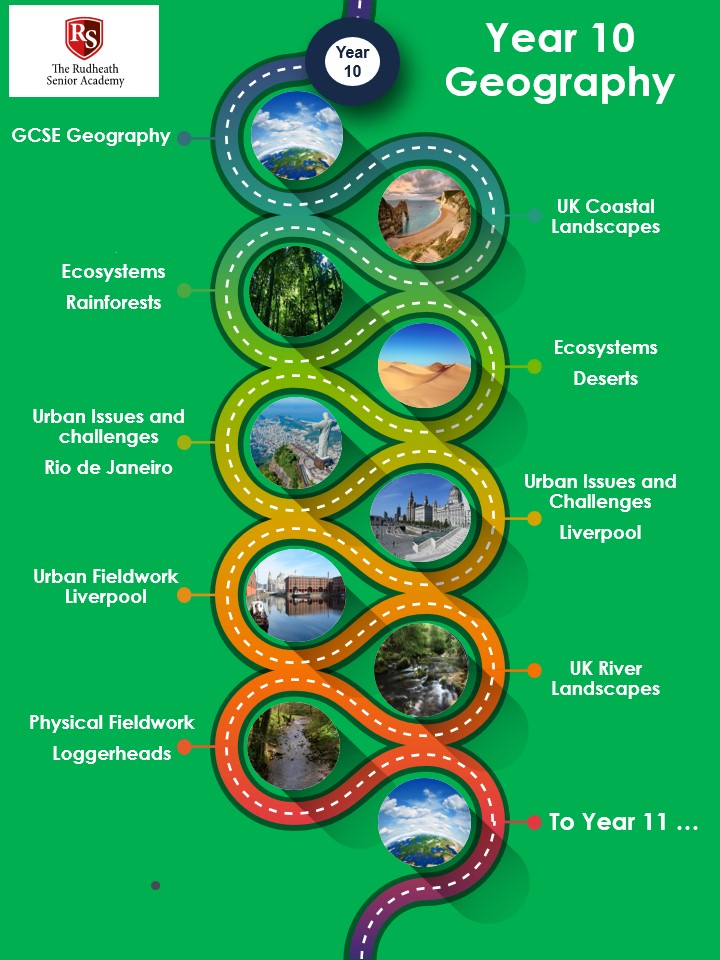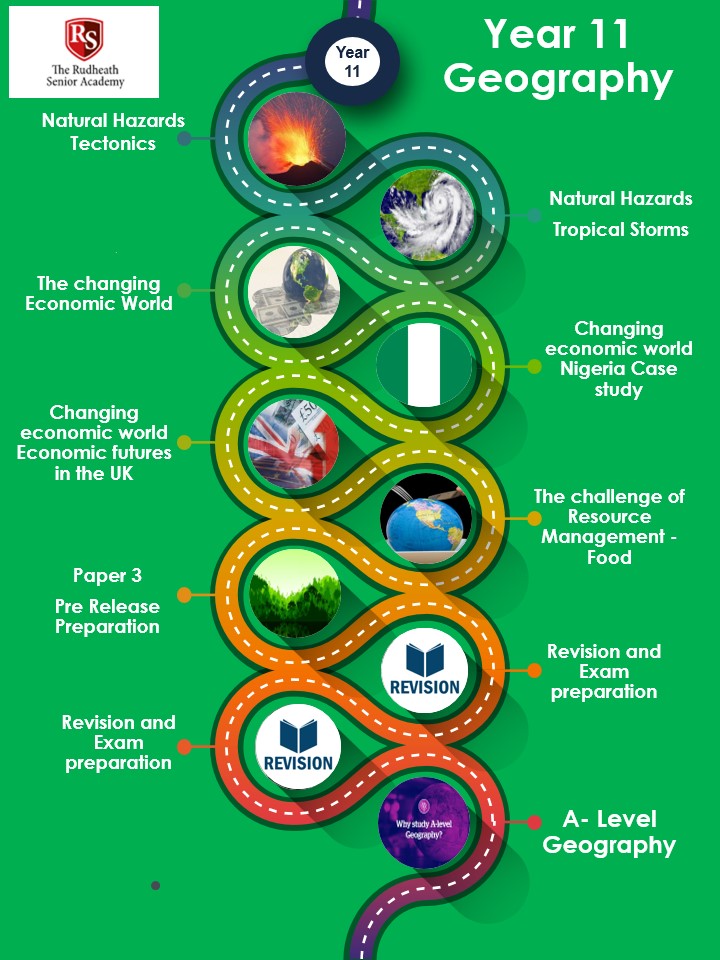
Geography
Geography provides pupils with knowledge of diverse places, people, resources, and natural and human environments, with a deep understanding of the Earth’s physical and human processes. The geography curriculum prepares pupils for each stage of their academic journey but also the world beyond the classroom by ensuring that young people can think like geographers and use their geographical knowledge to make sense of the world around them.
Geography is the subject that allows students to understand their lived experiences as they interact with their surroundings, both natural and human. It is the subject that allows them to decode and make sense of their environs. It is a well-established maxim that people fear what they do not understand. So not being able to understand your local, regional and even national surroundings is a particularly upsetting prospect. Geography gives students the base constructs, and more importantly, the investigative tools to explore and make sense of their environment and thus, their lives in a general sense. At Rudheath we will seek to create global citizens. Students who will understand their place in Rudheath, the UK and the world. They will understand how they came to be there in both a physical and human sense and how they can improve the situation of our environment and fellow people.
Geography at Rudheath Senior Academy will provide students with essential and transferable skills to deal with, and understand, the rapidly changing world in which they will be living. The world is increasingly interconnected, with large scale economic movements and migration across the globe, and within the country. Geography gives students the opportunity to be able to understand the reasons for these changes, and their consequences. We want to create discerning and inquisitive geographers who can use their geography skills to interpret the world around them.
We want our students to see a world beyond Rudheath, so that they can access it, if they choose to. We want to develop students love of learning and research, as well as helping students to create their own enquiries, making justifiable decisions, and being able to see issues from a range of viewpoints, not just their own. We seek to create global citizens who are aware of, and passionate about, the diverse physical world in which we live.
The Geography curriculum is sequenced in the following way to build scholarship and ambition, a 5 year spiral curriculum is in place which builds on prior knowledge, concepts and skills students need to develop between years 7 to year 11. The geographical concepts and skills are built upon in Year 7 through to GCSE. Schemes of Learning incorporate opportunity for the development of numeracy, literacy and to make links to wider world.
All units start with a ‘big question’ to investigate which will often lead to a decision-making exercise taking place. As the sequence of lessons continue the knowledge learnt builds up to be able to answer the big question or make a decision. Synoptic thinking is always encouraged to make links with other topics and the wider world.
Progress in Geography is measured through data produced at two key summative assessment points throughout the academic year assessing the student’s overall fluency and knowledge retention. As well as this 5 formative Quality Marked Assessments (QMA’s) in Key stage 3 and 5 exam practice assessments in Key stage 4 are undertaken. Formative assessment is embedded into lessons, in the form of peer & self-assessment, knowledge drills, visuals to demonstrate learning (e.g., diagrams, charts), questioning and verbal feedback, to highlight strengths and areas for improvement. Gaps in knowledge are quickly identified and corrections and improvements are promoted through whole class feedback.
Enrichment and fieldwork opportunities are embedded into the curriculum, offering learners a broader experience of Geography. Students have the opportunity to take part in both human and physical fieldwork studies at a range of locations including London, Liverpool, Wales and the local area working closely with the Northwich Heritage Trail.
Homework is delivered at Key stage 3 linked through the SENECA learning platform at Key stage 4 Homework utilises both the SENECA learning platform and regular exam response practice.
Students who continue with Geography post 16 follow the A-Level pathway with students studying Geography at Sir John Deans College, Priestly College and South Cheshire College. Studying Geography provides a wide range of career opportunities such as, Cartographer, Landscape architect, Travel writer, Armed Forces, Data Analysis, Environmental scientist. Environmental consultant, GIS specialist, Town Planning and Teaching.


